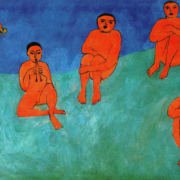Model-scene and Group positions in a group of young chronic psychotic patiens
Abstract
The authors show the utility of using two important concepts together – the Position Sequence and the Model Scene – in group therapy for young psychotics in a residential institution. [Model scenes are phase-specific metaphors; they persist over time and are referred to repeatedly by the group members]. A transition is observed from an initial position of non-differentiation, to a stage of partial recognition of differences among patients. In this second stage – called “self-reflectiveness position”- the patients begin to ask for appreciation and visibility, and manifest a greater awareness of themselves; this process is necessary to the individual’s development, but very dangerous for the unity of the group. The authors believe that the Model Scene takes on different features and functions, depending on the group phase it appears in; therefore, it is a useful tool for the understanding of the position the group is in.


